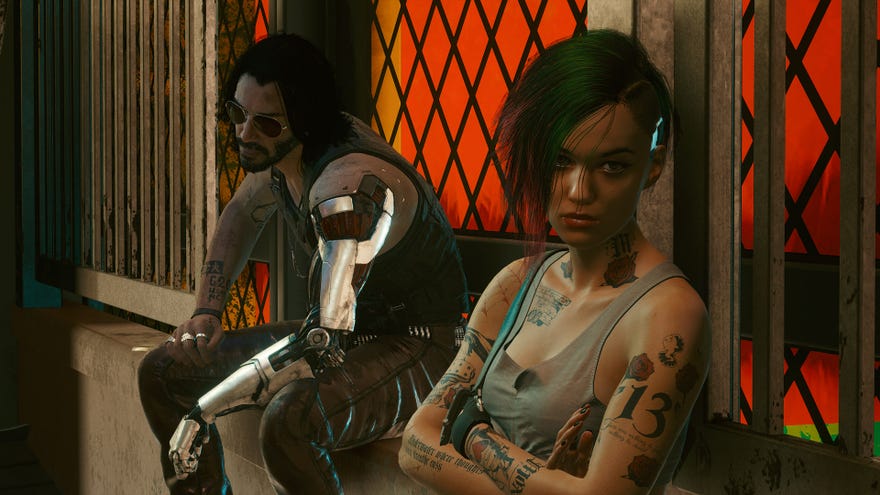Cyberpunk 2077 is "no place for happy endings", says the writer of Judy Alvarez storyline
Magda Zych is senior writer at CDPR
Cyberpunk 2077 has several endings and the recent Phantom Liberty expansion added more. I don't think it's a spoiler to say that none of these endings are uncomplicated.
"I know that some players were disappointed that we didn’t add a 'good' ending when Phantom Liberty was released," says CD Projekt Red senior writer Magda Zych in a new interview. But Cyberpunk 2077 is "no place for happy endings."
Zych made the comment when asked about Phantom Liberty's "decidedly bleak" potential ending.
"The thing is, Cyberpunk 2077 is a noir game and in this genre there is no place for happy endings by definition. Is anyone complaining that Casablanca ends badly? These are the genre rules," says Zych. "We have always strived for immersion and for our games to give the greatest possible illusion of reality, and as we know, not every real story always has a happy ending, we also know that every human life ends in death. V has still more variation in this regard; also for V everything simply happens in a more intensified way (which is also how things go in cyberpunk as a genre) and over a shorter period of time. But in my opinion, just because the story ends in a bleak way doesn’t mean it’s not worth experiencing. I’d say the opposite — it hits you harder because it rings true."
I'm a big fan of any game developer interview that mentions "every human life ends in death." Not a lot of producers at EA drop that into their conversations with press.
I loved Phantom Liberty's new and bleak ending, which isn't simply heartbreaking but is also, in its way, hopeful. I'm still thinking about it.
Zych was also asked about what she learned from working on the game and spoke about writing the character of Judy Alvarez.
"At one point while working on the game, we had to make a list of facts that influenced the quest’s possible outcome and all the dialogue variations," says Zych. "I was responsible for the character of Judy Alvarez and her whole storyline, so after gathering these facts, I was surprised because that column in the spreadsheet was long as hell, and then — cut to just after the launch — I read in reviews that people expected the story to branch out more. That really surprised me, as I knew how many different choices and factors went into just that single story arc. So it felt like there was some disconnect between my view on it and the expectations of the audience."
In my experience of playing it, I'd say Cyberpunk 2077 doesn't branch much in the way we tend to think of branching. There is no The Witcher 2-style split. But it does reflect your decisions throughout via dialogue, leading to every quest having umpteen small variations. These kind of changes are less sign-posted than a big branching point, though, so you won't realise it's happening unless you go watch a bunch of different playthroughs.
"Later, when I was discussing branching narration with my students at the Warsaw Film School, I realized that people who develop games have a pretty good idea about features and possibilities, but like to be conveniently ignorant of limitations," says Zych. "I was definitely guilty of that myself.
"I knew that we had a dialogue system unlike any other game; of course there are great AAA RPGs with an impressive storyline, but without dialogue choices, and games with dialogue choices but without that big interactive world. I was so hyped, I wanted to use all those cool features, and not think about how the number of lines to record and to set in the scene by cinematic designers grows exponentially. Now I would probably try to think more about limitations, and about what cool features I can add to create some framework for expectations, because the difference between game enthusiasts and game devs is that the former should stay unaware of limitations, because that enhances immersion, but the latter absolutely have to be."
You can read the full interview on GamingBolt.

